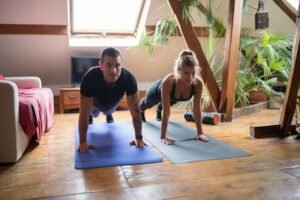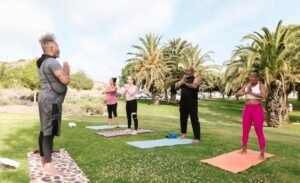Last Updated on October 3, 2025 by shawnshealth
Discover 10 simple home workouts for beginners to boost fitness and strength. No equipment needed—do them anywhere!
Getting Started with Home Workouts
Getting fit doesn’t always require a gym membership or fancy equipment. You can used home workouts to get great results! With these 10 simple home workouts for beginners, you can get fit fast and enjoy the convenience of exercising at home. Whether you’re new to fitness or looking for easy routines to stay in shape, these exercises are designed to help you achieve your fitness goals efficiently.
🧠 If you’re ready to go beyond basic home workouts, check out our post on Calisthenics for Beginners at Home. It’s designed to stand apart from typical calisthenics guides—focusing on real-world movement, progression, and freedom from gym constraints.
For a deeper dive into bodyweight mastery, explore the Ultimate Guide to Calisthenics—or if you’re training for longevity and independence, our Senior Fitness Guide offers safe, effective routines for aging strong.
What makes a home workout effective for beginners?
- Easy to follow
- Requires little to no equipment
- Targets overall fitness
- Can be done in short sessions
How can I stay motivated to work out at home?
- Set clear, simple goals
- Track progress
- Stick to a consistent schedule
- Celebrate small wins
What should I focus on in beginner home workouts?
- Building consistency
- Learning proper movement patterns
- Improving endurance gradually
- Listening to your body
How long should a beginner home workout be?
- 15–30 minutes per session
- Long enough to raise your heart rate
- Short enough to avoid burnout
- Adjust based on your energy and goals
🛠️ Looking to upgrade your home workouts? Explore top-rated fitness gear—from TRX straps to adjustable dumbbells—on Amazon. These tools can help you train smarter and stay consistent, no matter your space or schedule. 👉 Browse home fitness equipment on Amazon
⚠️ As an Amazon Associate, I earn from qualifying purchases.
Table of Contents
Medical Disclaimer: This content is for informational purposes only. Consult a healthcare professional before making any health or fitness changes.
Amazon Affiliate Disclaimer: As an Amazon Associate, I earn from qualifying purchases.
🎥 Take a look at this short video from Hampton at Hybrid Calisthenics! He breaks down how to build real strength and mobility through progressive calisthenics—perfect for beginners training at home. 💪 No fluff, no gear—just smart movement and lasting results.
10 Simple Home Workouts for Beginners to Get Fit Fast
Advantages of Home Workouts
- Convenience – Exercise anytime without commuting to a gym.
- Cost-Effective – No gym membership or expensive equipment needed.
- Privacy – Work out in a comfortable, personal space.
- Customization – Tailor routines to your fitness level and goals.
- Time-Saving – No waiting for equipment or dealing with crowds.
- Family-Friendly – Involve family members in fitness activities.
Authors Note:
Note here that I refer to anything not at a gym as a “home” workout because “home” is wherever you want it to be. Could be your living room, garage, motel room, the local park, a walkway, whatever. It’s all about not being saddled by time, and expense, to go to a certain place where there are a lot of other people then stand in line for the next machine to open up, all while knowing the person behind you just wants you to hurry up and get out. This article is all about the freedom of working out wherever you want.
🧬 Calisthenics isn’t just old-school gym class—it’s a proven, low-frills way to build strength, endurance, and flexibility at home. Harvard Health highlights how bodyweight training can be adapted for any fitness level, with no equipment required and real results for everyday movement. 👉 Read Harvard’s take on calisthenics and why it still works
Let’s Dive In!
1. Jumping Jacks
Jumping jacks are a fantastic way to get your heart pumping and work out your entire body. They are perfect for warming up before a more intense workout. To perform a jumping jack, start with your feet together and arms at your sides. Jump up, spreading your legs shoulder-width apart while raising your arms above your head. Jump again to return to the starting position. Repeat for 1-2 minutes.
Benefits:
- Improves cardiovascular fitness
- Boosts endurance
- Increases flexibility and coordination
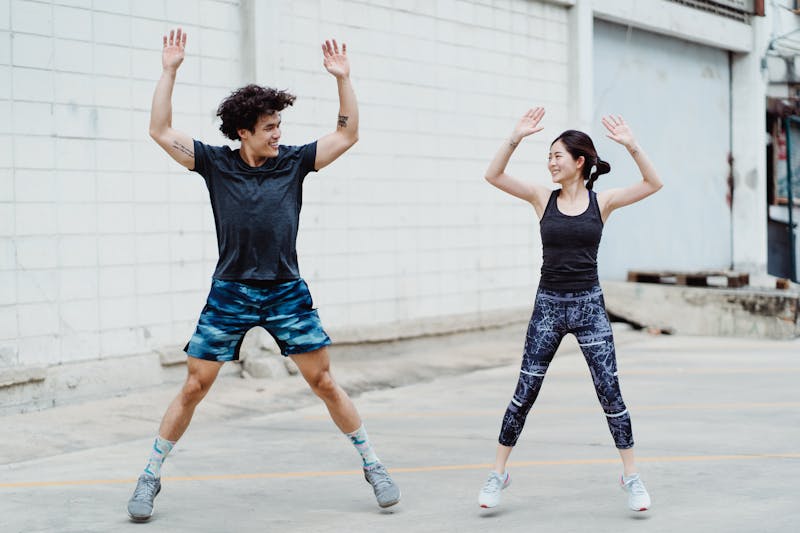
2. Bodyweight Squats
Bodyweight squats strengthen your legs and glutes while improving your overall balance and stability. To do a squat, stand with your feet shoulder-width apart. Lower your body by bending your knees and pushing your hips back, as if you’re sitting in a chair. Keep your chest up and back straight. Push through your heels to return to the starting position. Start with a few sets of 10-15 repetitions.
Benefits:
- Strengthens leg muscles
- Enhances core stability
- Improves mobility
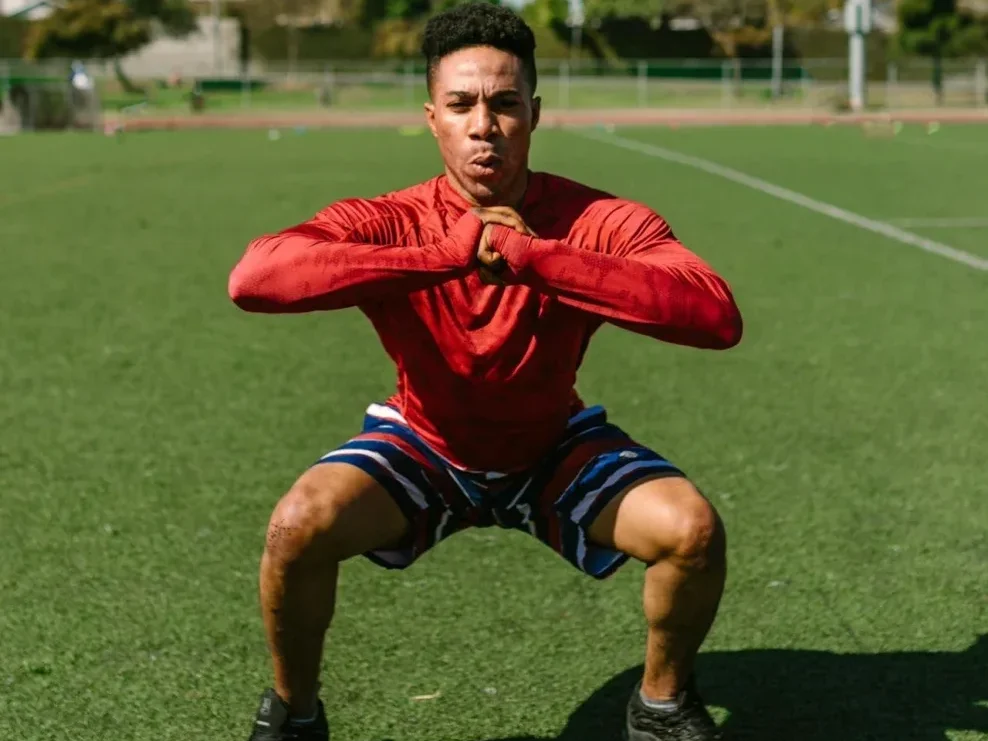
3. Push-Ups
Push-ups are a classic exercise that targets your chest, shoulders, and triceps. Beginners can start with knee push-ups and gradually progress to standard push-ups. To perform a push-up, place your hands shoulder-width apart on the floor. Lower your body until your chest nearly touches the ground, then push yourself back up. Aim for 3 sets of 8-12 repetitions.
Benefits:
- Builds upper body strength
- Enhances core stability
- Improves muscle endurance
💪 Ready to level up your push-up game? Learn how to build the strength, endurance, and mindset to crush 100 push-ups in a single set—no shortcuts, just smart progression and real results. 👉 Read the full guide on mastering 100 push-ups
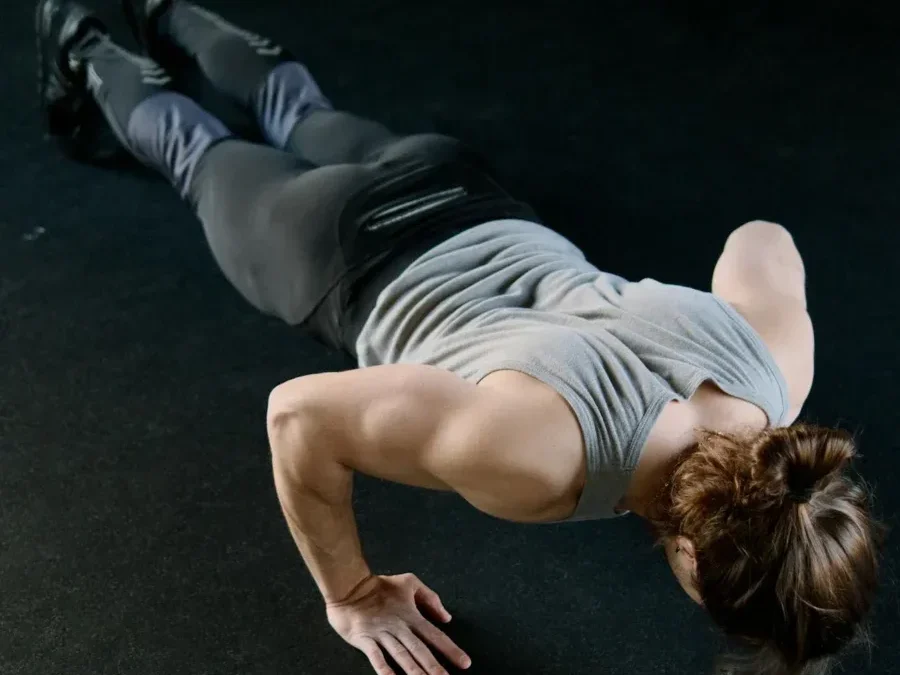
4. Plank
Planking is excellent for building core strength. To perform a plank, get into a push-up position but rest on your forearms instead of your hands. Keep your body in a straight line from head to heels. Hold the position for as long as you can, aiming to increase your time with each session.
Benefits:
- Strengthens core muscles
- Improves posture
- Reduces back pain
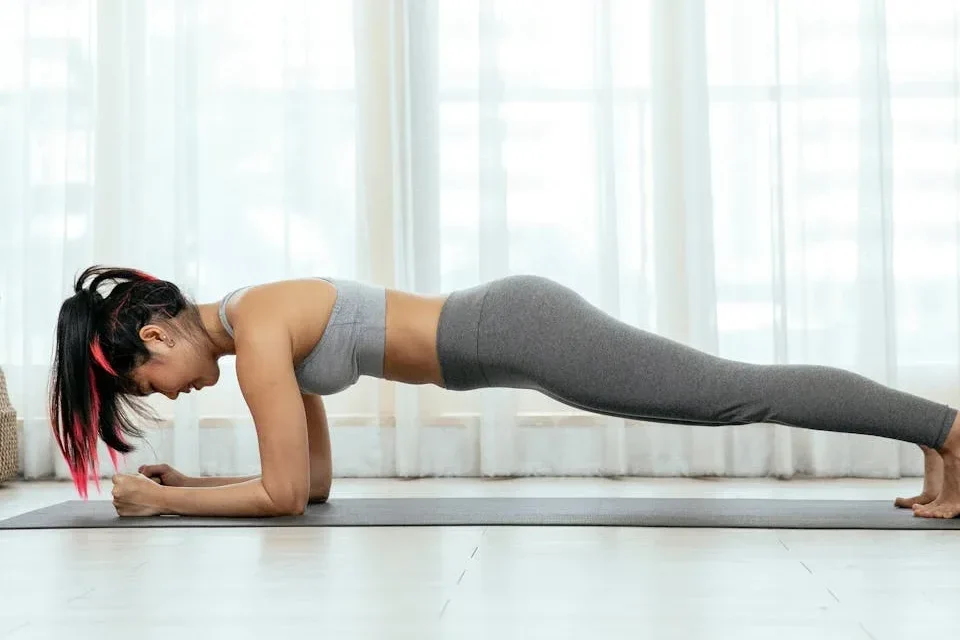
5. Bicycle Crunches
Bicycle crunches engage your abs and obliques, helping to build a strong core. Lie on your back with your hands behind your head and legs raised at a 90-degree angle. Bring your right elbow towards your left knee while straightening your right leg. Switch sides in a pedaling motion. Perform 3 sets of 15-20 repetitions per side.
Benefits:
- Strengthens abdominal muscles
- Improves core stability
- Enhances coordination
🏠 Want a structured, no-equipment workout plan you can do anywhere? BetterMe breaks down how calisthenics builds real strength and endurance using just your bodyweight—complete with beginner-friendly routines and smart progression tips. 👉 Explore BetterMe’s guide to home calisthenics workouts

6. Lunges
Lunges are great for working your thighs and glutes. Stand tall with your feet together. Step forward with one leg, lowering your hips until both knees are bent at about 90 degrees. Return to the starting position and repeat with the other leg. Perform 3 sets of 10-15 repetitions on each side.
Benefits:
- Tones leg muscles
- Improves balance
- Enhances functional strength
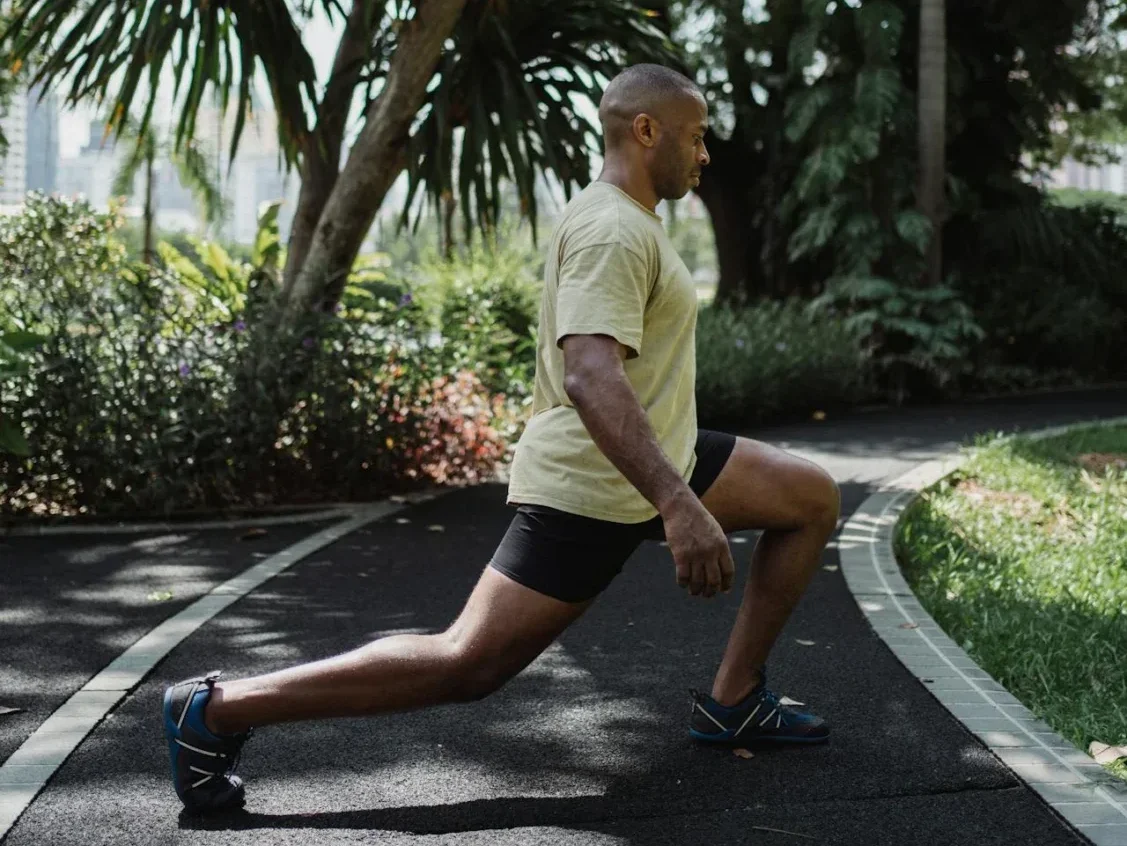
7. High Knees
High knees are a fun way to get your heart rate up and improve your cardiovascular fitness. Stand with your feet hip-width apart and quickly alternate lifting your knees to your chest. Move at a steady pace and maintain proper form. Perform this exercise for 1-2 minutes.
Benefits:
- Boosts cardiovascular health
- Enhances coordination
- Strengthens lower body muscles
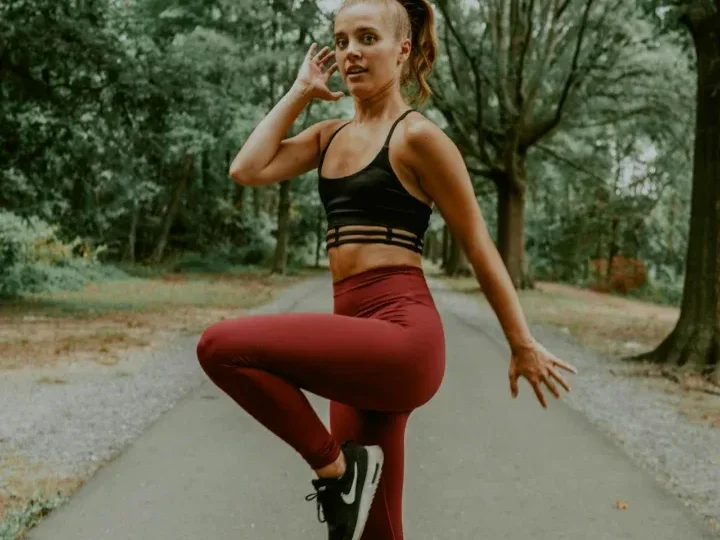
8. Tricep Dips
Tricep dips can be done using a sturdy chair or bench. Sit on the edge with your hands next to your hips. Slide off the edge and lower your body by bending your elbows. Push back up to the starting position. Perform 3 sets of 10-12 repetitions.
Benefits:
- Tones tricep muscles
- Improves upper body strength
- Enhances arm definition
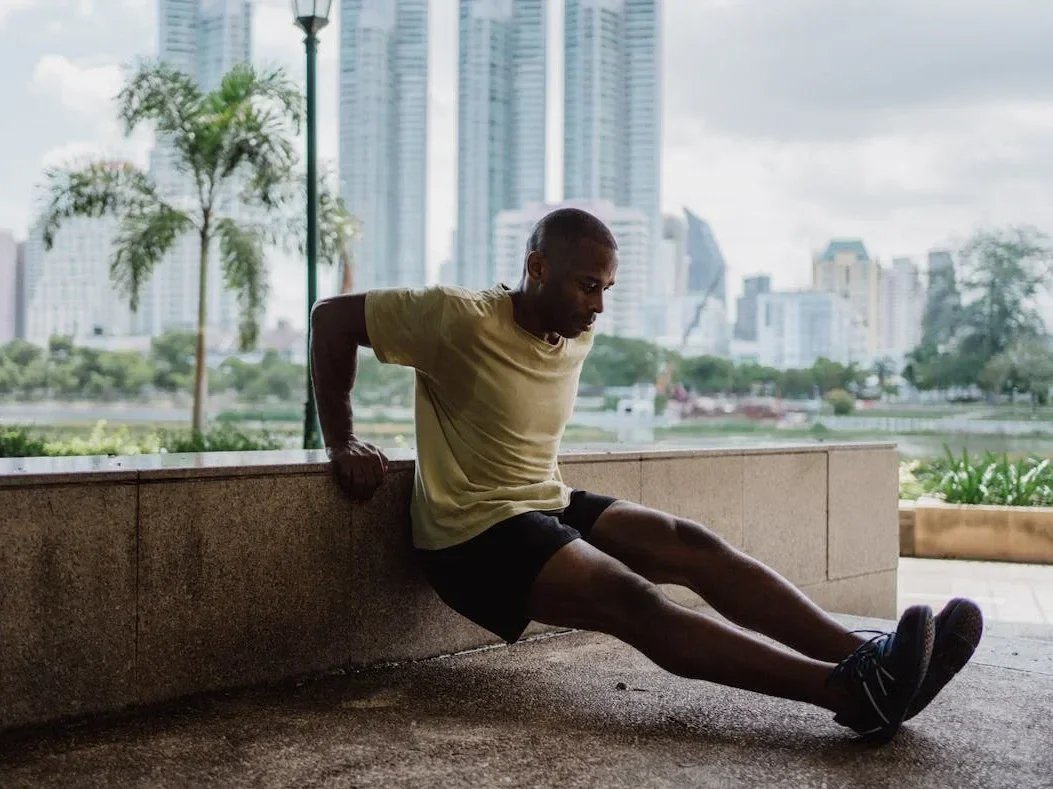
9. Glute Bridges
Glute bridges are excellent for strengthening your lower back and glutes. Lie on your back with your knees bent and feet flat on the floor. Lift your hips toward the ceiling, squeezing your glutes at the top. Hold for a few seconds before lowering your hips back to the floor. Perform 3 sets of 15-20 repetitions.
Benefits:
- Strengthens glute muscles
- Enhances lower back stability
- Improves hip mobility
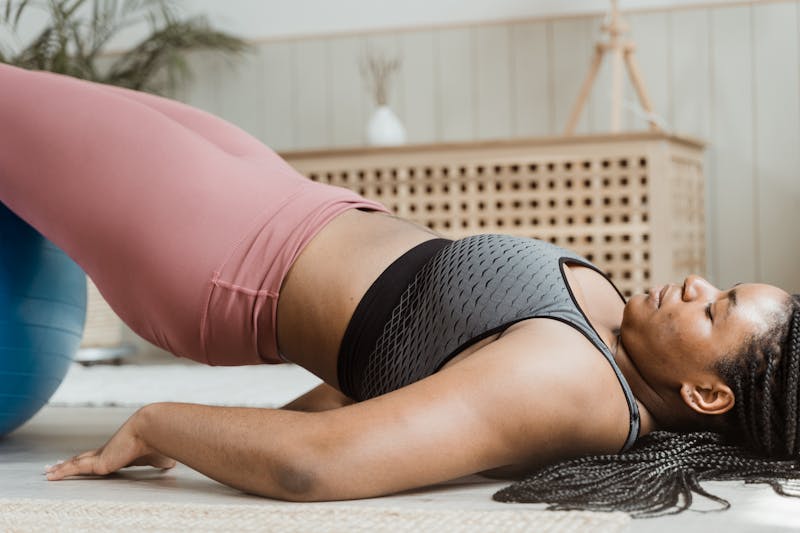
10. Mountain Climbers
Mountain climbers are a full-body exercise that improves your strength and endurance. Get into a plank position and bring one knee towards your chest, then switch legs in a running motion. Perform this exercise for 1-2 minutes.
Benefits:
- Boosts cardiovascular fitness
- Strengthens core muscles
- Enhances overall body coordination
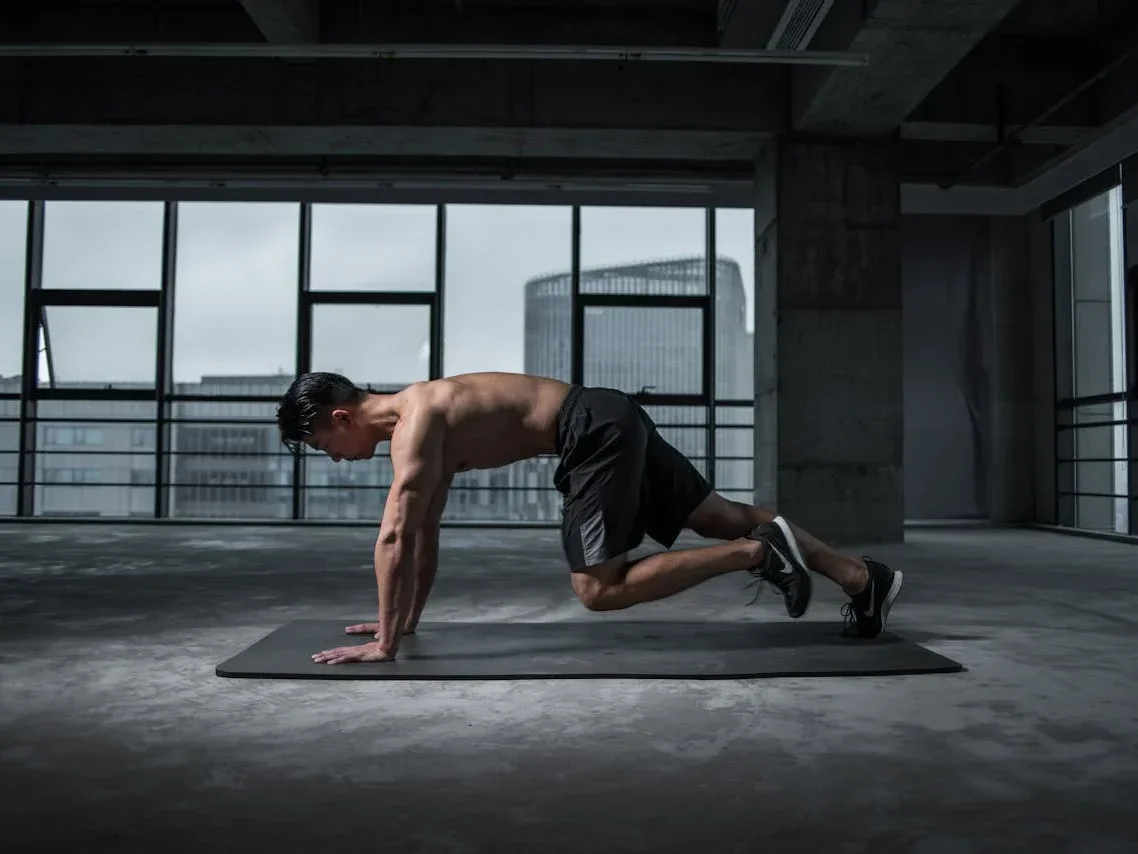
Tips for Success
To maximize the benefits of these home workouts, keep the following tips in mind:
- Consistency is Key: Aim to work out at least three times a week. Consistency will help you see progress and maintain motivation.
- Warm Up and Cool Down: Always start with a warm-up to prepare your muscles and end with a cool-down to prevent injury.
- Stay Hydrated: Drink plenty of water before, during, and after your workouts to stay hydrated.
- Listen to Your Body: Modify exercises as needed to suit your fitness level and avoid injury. If you experience any pain, stop immediately.
- Track Your Progress: Keep a workout journal to track your progress and set new goals.
- Incorporate Variety: Mix up your workouts to prevent boredom and target different muscle groups.
❌ Common Mistakes to Avoid
- Skipping warm-ups or cool-downs
- Doing too much too soon without progression
- Neglecting form and movement quality
- Expecting instant results without consistency
📌 Key Takeaways
- Home workouts are effective, accessible, and adaptable to any space.
- Bodyweight exercises build real strength, endurance, and mobility.
- Consistency, progression, and variety are key to long-term results.
Conclusion
By incorporating these simple home workouts into your routine, you can get fit fast and enjoy the benefits of regular exercise. Remember to stay consistent, and don’t hesitate to modify exercises to suit your fitness level. These workouts require no special equipment, making them accessible to everyone.
🧓💪 Looking to build strength, mobility, and long-term resilience—whether you’re 30 or 70? Our article on Senior Fitness Workouts isn’t just for older adults. It’s packed with safe, effective routines that work for anyone focused on aging strong, training smart, and staying independent.
🔥 Gear to Help You Achieve Your Health and Fitness Goals 💪
If you’re looking for tools to enhance your fitness journey, check out this. Explore top-rated fitness gear on Amazon to enhance your workouts. Check out the latest picks here! 🛒 to support your workouts and progress.
🚀 Find equipment designed to boost strength, endurance, and overall performance!
⚠️ Short disclaimer: As an Amazon Associate, I earn from qualifying purchases.
Frequently Asked Questions About Beginner Home Workouts
Can I really get fit with home workouts?
- Yes, consistency matters more than location
- Home workouts improve strength, endurance, and flexibility
- Many people reach their goals without ever going to a gym
How many days a week should I work out as a beginner?
- 3 to 5 days per week is ideal
- Allow rest days for recovery
- Start slow and build frequency over time
Do I need equipment to start?
- No, bodyweight exercises are effective
- Everyday items can be used for resistance
- Equipment can be added later for variety
How long should a beginner workout be?
- 15 to 30 minutes is enough
- Focus on quality over duration
- Add time as your fitness improves
Should I warm up before home workouts?
- Yes, warming up prepares your body
- It helps prevent injuries
- 3 to 5 minutes of light movement is enough
How do I stay consistent at home?
- Set a workout schedule
- Create a dedicated workout space
- Track progress to stay motivated
What if I miss a day?
- Don’t stress—just get back on track
- One missed day won’t undo your progress
- Focus on long-term consistency
Can home workouts build real strength?
- Yes, especially when using progressive overload
- Strength comes from challenging your muscles regularly
- You can build a strong, balanced body at home
Let each of us please his neighbor for his good, leading to edification. – Romans 15:2


